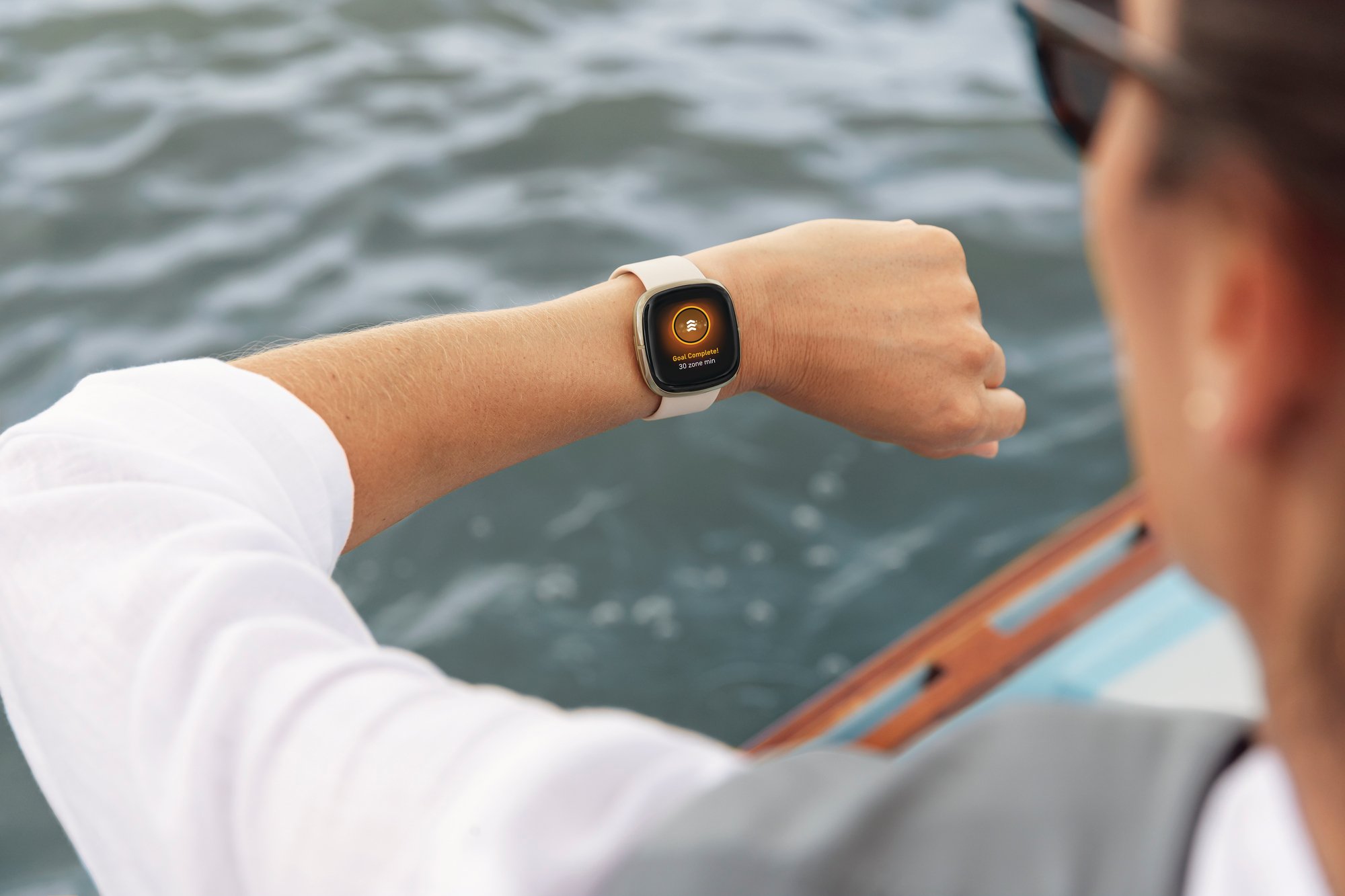Fitbit (FIT +0.00%) reports third-quarter results, notably including a return to non-GAAP profits. The Versa is clearly resonating with consumers, as demand for basic fitness trackers continues to decline, but Fitbit isn't out of the woods yet.
A full transcript follows the video.
This video was recorded on Nov. 2, 2018.
Dylan Lewis: Why don't we kick things off with Fitbit? This is a company that has desperately needed some good news, and it seems like they finally got it with this new report.
Evan Niu: It was a pretty strong release, in my opinion. Revenue was up to about $393 million, which beat its own forecasts as well as analyst expectations. The big news here is that they became profitable again. They've been losing money for about two years as people have been shifting away from these basic fitness trackers toward more full-featured smartwatches. The big challenge has always been, can they transition from trackers to smartwatches successfully? And, of course, they still sell trackers. Those are really popular in the Middle East, Africa, and some of those emerging markets. But in the U.S., it's really all about smartwatches these days. They were able to post adjusted net income of $10 million, or $0.04 per share. Getting back in the black.
Lewis: Worth noting that on, on a GAAP basis, they did lose money. We have to emphasize that adjusted income there. Exploring that outperformance a little bit, it seems like the company is seeing success with the smartwatch line. That was really the big, looming question for them. With the more simplified fitness trackers out there, and that market being a little bit tougher with some competitors like Xiaomi in the mix, can they go to the smartwatch market and make a big splash? It seems like the answer is yes.
Niu: Right, especially after their first smartwatch, the Ionic, flopped. That thing did not sell well. It didn't look that appealing from a mainstream perspective. They considered more of a niche performance type positioning, whereas the Versa is very clearly resonating much better with consumers. If you remember, they spent years acquiring different little companies to help them build their smartwatch strategy. And now, we're seeing the results of that. They sold about 3.5 million devices during the quarter. Average selling prices were up a little bit to $108 as the product mix continues to shift toward smartwatches, which are now about half of revenue. I do think they're making some really impressive progress here.
Lewis: You look at the overall market share, a year ago, they had 0% market share in smartwatches. Flash forward to now, they are one of the major players, they're in second place in this market. Not only are the financial results looking good, but in the competitive landscape, they are not only holding their own but taking market share from other players.
Niu: Exactly. Since Ionic launched in Q4 of last year, a year ago, they really didn't have anything. Now, we fast forward to today. Android Wear OS, which used to be Android Wear, has done so terribly. No one is really buying those devices. Alphabet really failed on execution in terms of getting into wearables. I think that's given Fitbit this opportunity to step up and fill that need, provide some type of alternative to Apple Watch. Apple Watch is still the dominant smartwatch in the world right now, but people want competition, people want alternatives, and Fitbit is really offering something else.
Lewis: Outside of the financials, looking at some of the user activity, I think there are a lot of really encouraging signs there. A lot of the activations that they're seeing over this quarter are from new users. It seems like engagement with folks that had been users at some point and then fallen off is starting to get revitalized a little bit.
Niu: Right. That's always been a big problem with these basic fitness trackers. It's like when people start going to the gym, then you get kind of lazy, then you just stop going. People would buy these fitness trackers, use them for a couple of months, and then just stop using them. Let's face it, we're all lazy. [laughs] The big challenge for Fitbit has always been, how do we keep these users engaged? How do we motivate them to stay active and improve their lives and health? They're starting to make some progress there. They said that out of the existing users that had bought new Fitbits this quarter, about half of them had previously been inactive. So, they are starting to get more people back on the platform that had previously been dormant.
Lewis: After quarters of declines on the revenue side, the market was very happy to see some revenue growth, even if it was pretty meager. How are you feeling about this company? It's up like 35% since this earnings release. Does anything that you've seen here change your outlook on this business?
Niu: I do think it was a very strong report, and I do think they're making a lot of progress with this turnaround. They had been on the ropes for a while with these fitness trackers. But, at the same time, I don't think they're out of the woods yet. This is going to be a long game. We're talking about smartwatch platforms. Any platform strategy, by default, is a very long-term strategy. So they're making progress, but they still have to keep going. They're also in consumer hardware. It's notoriously difficult. You have to constantly innovate, constantly put out new products that people like, you have to build your platform, you have to get more app developers on there. There are just so many pieces to do well and maintain over time. And, you're competing against literally the richest company in the world. So it's going to be tough. That said, I'm impressed that they've been able to do as well as they have over the past couple of years with transitioning to smartwatches that people want to buy.
Lewis: They're guiding for what is essentially a slight decline in revenue next quarter after being basically flat year over year this most recent quarter. It's not like the hardware segment is showing blistering growth. It's a nice return, and it's a show of strength in some key categories for them, but hardware is still this business. It's all of their revenue. That hasn't changed. And I think what makes a hardware company really compelling is if they can create a really viable platform. And I don't see that yet with this company. There's so much potential for it, but unless I start seeing the signs and some money coming in on the software side for them, I'm going to remain a skeptic. I think I can find better places to put my money, honestly.
Niu: I totally agree with you. They've been talking about this idea of building up the services business for a long time, and they're still trying, and they want to get into corporate wellness programs. But these are still less than 1% of revenue. Again, when it comes to building a platform, you want to get away from relying totally on hardware, and grow your software and services business a little bit. And on that front, they have not made much progress.





